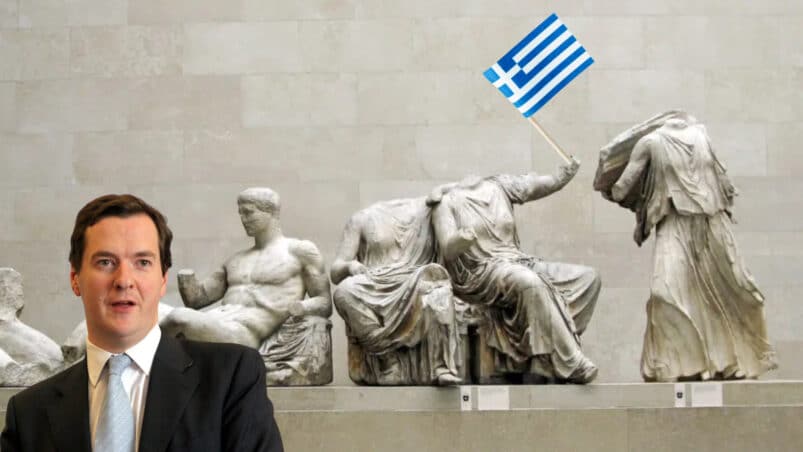In a surprising change of narrative, George Osborne, chairman of the British Museum, suggested that the Parthenon Marbles – often referred to as the Elgin Marbles – could return to Greece. In a statement, the chairman said that there is a “deal is to be done”, so long as negotiations are held between “sensible people”. Euronews reports that the chairman sees possibilities for a long-term loan of the Marbles.
The debate over the sculptures has a lot of history. Even at the time, there was resistance; Lord Byron, a prominent English poet, wrote The Curse of Minerva upon discovering that Elgin had taken the friezes from the Parthenon. The debate reached the public in the 1980s when Melina Mercouri, Greek culture secretary, began campaigning for their return. In recent years, celebrities like George Clooney and Stephen Fry have expressed support for the restitution, along with many activists and academics.
What has the museum said before?
Is this just part of a strategy to clean up the museum’s image in the face of growing criticism? ITV News recently interviewed Jonathan Williams, the museum’s deputy director, who repeated the same justifications about the Parthenon Marbles that the museum has held to for years. “The world needs these objects to remain here in London […] within the context of this global collection,” was his answer to whether they should be returned to Greece.
In 2021, British Prime Minister Boris Johnson made a strong affirmation that the Marbles should remain in the UK, with the government maintaining that they were purchased legally by Lord Elgin. Greece’s culture minister Lina Mendoni immediately dismissed this: Johnson’s argument relies on a specific historical document which has yet to be found. Researchers speaking at the International Workshop on the Reunification of the Parthenon Sculptures note that the document given to Elgin’s workers did not allow them to carve pieces off the Parthenon. They argue that the removal of a monument would have required a “firman” from the sultan, which has never been found.
The change in stance may be a subtle response to UNESCO. In late 2021, the organisation made a landmark call to the British government to address the restitution issue following a unanimous vote. Previously, government officials have stated that the decision can only be made by British Museum trustees. According to the committee, however, this is a matter of international relations between Greece and the UK. Furthermore, UNESCO backs the Greek side on this matter.
A change in attitude
Osborne’s comments notably focus on sharing, rather than return, which falls far short of what many have demanded from the museum. Restitution would require transferring ownership of the sculptures to Greece. A long-term loan would still symbolically suggest that the Parthenon Marbles are British, and therefore under the control of the British Museum.

Both Italy and France have returned parts of the Parthenon Marbles to Greece in recent years as long-term loans. In these cases, Greece provided the museums with a different cultural object in exchange. This might be the solution that Osborne is aiming toward, even if it’s a compromise for Greece. Diplomatically, it may be easier to convince the British Museum to do a swap, which was proposed to the British in late 2021.
Some have even pointed to high-tech 3D printing as a solution to the problem. Greece would own the real thing and the British Museum would still have something to show eager visitors. Given the cultural aura that the sculptures hold, however, it seems unlikely that the museum would be happy to show anything other than the genuine works themselves.
The Parthenon Marbles may not be on their way back to Greece just yet, but attitudes do seem to be changing, even in the British Museum.

